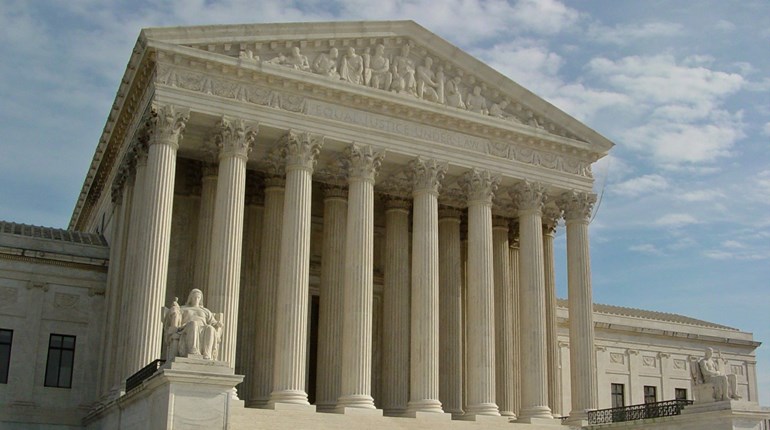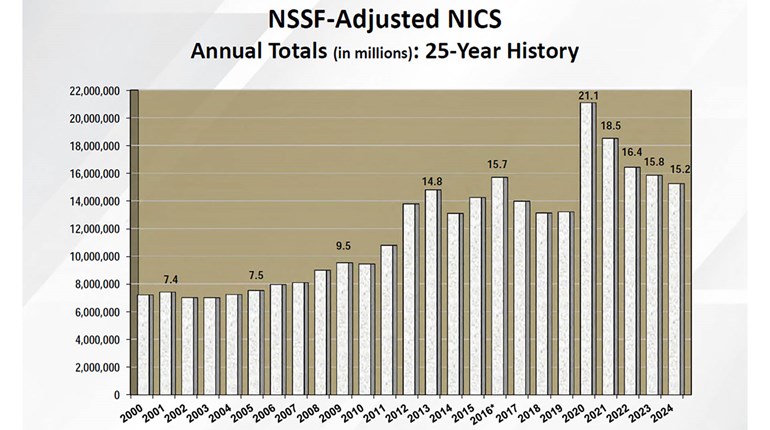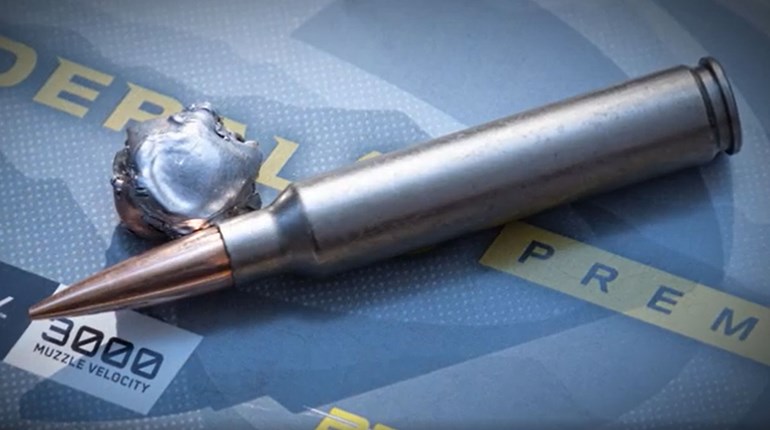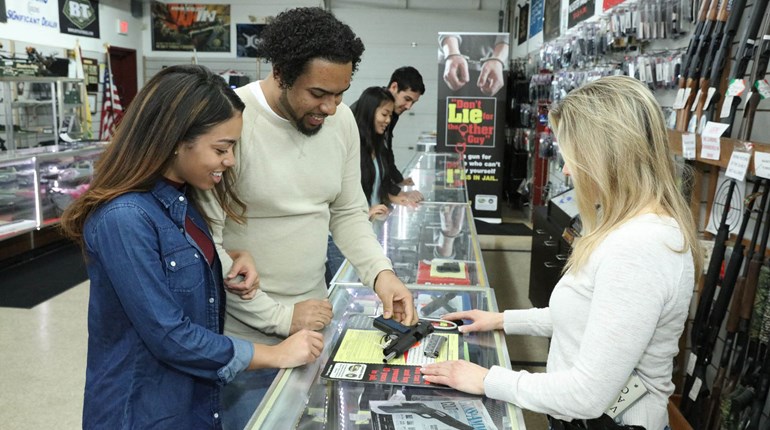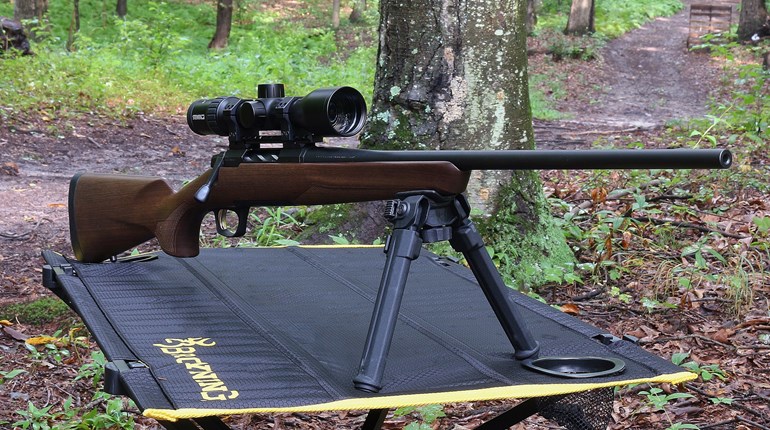
Last January, USA Today ran a story under the headline “FBI official: ‘Perfect storm’ imperiling gun background checks.” The story said that tidal waves of background checks called into the FBI’s National Instant Background Check System (NICS) “forced” the FBI “to temporarily halt the processing of thousands of appeals from prospective buyers whose firearm purchase attempts have been denied.” They also temporarily redeployed their 70 or so analysts who deal with these appeals to help with the flood of NICS checks coming in from people attempting to purchase guns from federally licensed firearms dealers (FFL).
This story ran at a time when President Barack Obama was again arguing that we need a national “universal background check” mandate. (This is in quotes because a background check can’t really be universal when criminals, by definition, won’t submit themselves to such a law.) The timing of this report from a newspaper that often has an anti-gun slant felt too convenient, so I decided to follow up to see how the FBI’s NICS is doing now.
Stephen G. Fischer Jr., chief of multimedia productions for the FBI’s CJIS Division, answered my questions. As you’ll see, the story is thankfully very different now.
A1F Daily: How is the FBI dealing with the growth in background-check requests? Are you able to keep up with the volume?
FBI: The NICS Section continues to determine a final status for the majority of firearm background checks minutes, sometimes seconds, after the check search is initiated. During the highest volume of incoming firearm background checks the NICS Section’s management shifted the focus of all of its staff to process those checks to ensure lawfully mandated requirements were met while striving to adhere to the mission of aiding in public safety. The NICS Section’s staff, along with the support from various Criminal Justice Information Services (CJIS) Division staff and new hires, has been successful in processing checks so the three-business-day time frame is not surpassed. Additionally, with regard to the new hires, the NICS Section is in the process of increasing its workforce, and as staff is being on-boarded, training is conducted immediately.
A1F Daily: USA Today wrote: “The surge of criminal background checks required of new gun purchasers has been so unrelenting in recent months that the FBI had been forced to temporarily halt the processing of thousands of appeals from prospective buyers whose firearm purchase attempts have been denied.” Have you been able to recover from this? “The NICS Section continues to determine a final status for the majority of firearm background checks minutes, sometimes seconds, after the check search is initiated.” — Stephen G. Fischer Jr., chief of multimedia productions for the FBI’s CJIS Division
FBI: The NICS Section is currently processing a high volume of firearm background checks which may impact their response time to inquiries related to incoming appeal requests. The NICS Section is in the process of increasing its workforce and intends to focus on the volume of appeals upon the completion of training the staff being on-boarded.
A1F Daily: Do you still have 70 analysts redeployed to help with the volume of these requests?
FBI: To ensure the analysts’ original work-related duties are not hindered, the NICS Section releases the staff assisting with firearm background checks to return to their normal functions during periods when the volume of incoming checks is forecasted to be at a more manageable level.
A1F Daily: Has the volume of records increased substantially in recent years pertaining to those who are legally prohibited from purchasing a firearm? (I ask this because of legislation [Fix NICS] passed in some states is said to be providing more information.)
FBI: When an FFL initiates an NICS transaction, a name search is conducted to search three national databases for possible matches. These databases are the National Crime Information Center (NCIC), which contains information on wanted persons, protection orders, and other persons identified as relevant to the NICS searches; the Interstate Identification Index (III), which contains criminal history records; and the NICS Index, which contains information on prohibited persons as defined in the Gun Control Act of 1968, as amended. The NICS Index includes individuals who have been determined to be federally or state prohibited from possessing a firearm when the disqualifying information may not be available through the NCIC or III systems.
The CJIS Division serves only as the custodian of arrest information submitted voluntarily by local, state and federal law enforcement agencies to the above national databases. Statistical data regarding the NICS Index is found here. Located at the bottom right of the screen, under the “Reports and Statistics,” data can be accessed for “Active Records in the NICS Index,” along with “Active Records in the NICS Index by State.” Any statistical information regarding the NCIC or the III must be officially requested due to appropriate approval necessary for dissemination via Freedom of Information Act.
A1F Daily: How does an NICS employee complete a check? Are they simply searching digital databases or are they calling states or agencies?
FBI: The answer to your questions are contained in an informative document about the processing of an NICS firearm background check known as the Fact Sheet which is located at this link.
A1F Daily: How many background checks does a typical employee handle in an average day?
FBI: Due to numerous factors, scenarios, functions, etc., the number of firearm background checks processed by a NICS Section’s staff member is not easily computed. The NICS Section’s staff possesses a diverse range of knowledge, skills, and abilities and performs multiple functions in support of making a final determination for a NICS check. The NICS Section Standard Operating Procedures include work performance goals to cover the multiple levels of functions necessary to complete a transaction.












